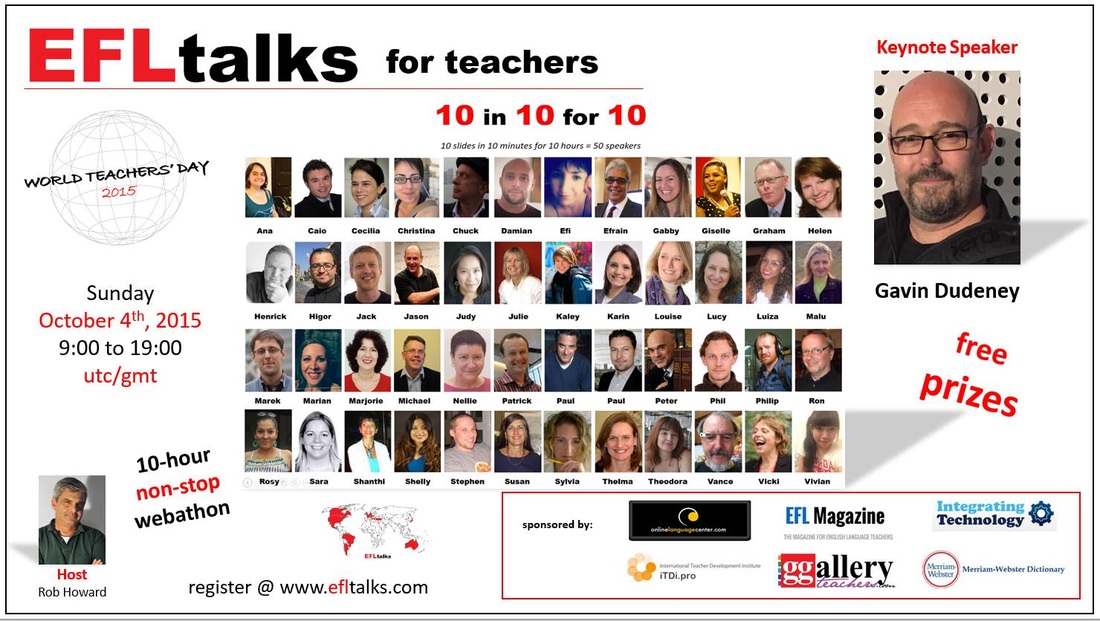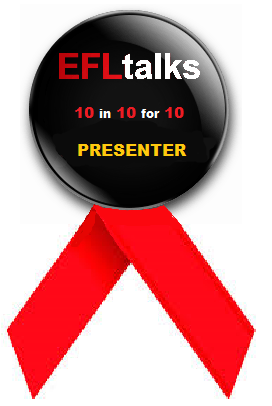|
Was your textbook in English written by a native speaker? Today I'd like to talk to you about the importance of a book being written by a native speaker if you have to learn English or other subjects in the English language. I was in the Netherlands for a few days and I was sitting on a bus when the girl next to me pulled out her English-language textbook. She was going to university and she was revising. On the first page of her open book it said 'Present Time' and all the exercises were referring to the Present Tense so I thought it was unusual. Then and as she flicked through the book she got to the page where it said the 'Past Time' and again I was quite surprised because in English we don't say 'Present Time' and 'Past Time' but we say present tense and past tense - I didn't see the cover of the book but I presume that it was written by a Dutch person because in other languages they do speak about 'time' but in British English we say “tense” so this brings me to the subject which I've been thinking about for a long time. I've been teaching for about 40 years now and very often students will come to me with their book. It may not necessarily be an English language learning book, it could be an English literature textbook, a history book, a philosophy book, a university text on architecture but in any case a textbook that has been written by a non-native speaker. Now I know that non-native speakers have a lot of advantages because they can teach people remembering the difficulties they went through, so I'm not against non-native speakers but I do find that when I read a textbook which was written by a non-native there may not be actual mistakes but the words just don't flow – they don't sound natural and you often lose the information in the flowery language. In the past at least three English literature books which I read, written by Italian non-native speakers, were correct grammatically and very fluent; however they just didn't sound English because English native speakers, when they talk about history or literature, are very concise: they give the information, they don't go round in circles, while in other languages, the Latin-based languages for example, they tend to be very flowery, they don't go straight to the point. So when I was reading these books, trying to help my students, I realized that had they been written in another language it would have been fine but the English just don't do that, the English go straight to the point in textbooks (they are not like descriptive novels). The other day an architecture student had to summarize a 15 page article by a Portuguese author written in English. I tried reading it myself and it was almost impossible to separate the information from all the beautiful flowery descriptive language. This is probably perfectly acceptable in Portuguese but made the task daunting. I've also noticed that some English language learning textbooks have two authors of their own country plus one who is an English native speaker. The impression I have there is that the book was actually written by the non-native speakers and then probably given to the native speaker to check for mistakes. Now I don't know whether the native speaker reads every single line or whether he just browses through it but those are the books where I find there are no mistakes however that they just don't sound as if they were written by a native speaker therefore that name doesn't really count as an author. In my opinion, if you have a choice, buy books written by native speakers. Then if your school sets books which were not written by native speakers, why not ask them and find out if it's possible to have a different kind of textbook. The book I was looking at two days ago on the bus, the one which said present time and past time didn't actually have any other mistakes, it was explaining the grammar very well but the actual title was wrong so I do believe in using language learning textbooks being written by native speakers even if non-native speakers are equally good, if not better than native speakers, at explaining the language because they've been through the learning process while native speakers haven't, so non-natives can maybe relate better to students. Therefore, non-native speakers are a very valid choice if they're explaining things to you but maybe not such a good choice when writing textbooks. I hope you find this advice useful. Susan Check out my YouTube video:
0 Comments
Engaging young people in conversation with English-speaking peers not only increases their vocabulary, grammar, fluency, comprehension and confidence but is also much more motivating because they think alike, have similar interests and are usually on the same wave-length.
It is that more beneficial because they pick up and interiorise the language without thinking and translating - the expressions and collocations become "second-nature". At a recent venue abroad a very fluent non-native English speaker kept up a running commentary on the athletic events taking place. However some basic mistakes made it obvious that he was not thinking in English: he wanted to remind the athletes to wear their tracking equipment using the phrase, "Think ON the transponder and number" (in German: Denk AUF...) instead of "Think ABOUT / OF..."; he often repeated, "This is the last lap IN FRONT OF the finish" meaning "the last lap BEFORE the finish", (die letzte Runde VOR dem Ziel). VOR in German means IN FRONT OF as well as BEFORE and if he had learnt them as collocations he would never had made these mistakes! The best way to learn a language is 'living' it in context. The younger the better... The sooner the better... that is why speaking to peers is essential: either for free on various social networks and conversation exchange websites or with paid online lessons which guarantee conversation with serious youngsters who have a wider range of topics to discuss due to their cultural backgrounds and interests which may not only improve a teenager's English but also broaden his horizons. Check out for example CONVERSATION ONLINE for TEENAGERS by a TEENAGER... Another language experience I had in my mother's nursing home in Germany the other day was when all the elderly were sitting watching an event and a German woman SUFFERING FROM obvious DEMENTIA overheard us speaking English and intervened with an excellent accent and correct fluent sentences. This goes to prove that WHEN LANGUAGE IS WELL EMBEDDED IN THE BRAIN THE ELDERLY RETAIN IT even when they are no longer capable of participating in life in the 'present'. Some food for thought! Susan My daughter Laura, sixteen years old, has proven the STRENGTH OF MOTIVATION to me: dire hard work and WILLPOWER almost beyond her limits has brought her to the EUROPEAN SPEEDSKATING CHAMPIONSHIPS as well as passing her very demanding school year with flying colours. Here I sit in my camper in Austria at the start of the venue, not worried about what the outcome will be, but reflecting on the arduous road that led us here - sheer motivation and willpower. She is not one of those talents to whom everything falls easy, she has worked hard against all odds to reach her two goals in sports and education.
This has given me a new insight to learning as I tend to believe that curiosity and enjoyment are the best stimuli for learning and retaining what one learns. Motivation is certainly another fundamental ingredient but I feel that for most people it is difficult to find the willpower to do something they don't at least partially enjoy, despite the hard work it may comprise. So I utterly admire those who find the willpower to carry on doing something that may not give them the desired results - or at least not immediately. Motivating students is therefore one of my top priorities: arousing their curiosity and making it as enjoyable as possible so that they want to carry on learning outside the classroom, using various methods, media, adjustments to their social networks and corresponding with foreigners as well as travelling whenever possible. That is where technology inside and outside the classroom as well as games make learning much more effective and exciting than it used to be. My holiday homework always comprises at least DAILY: WATCHING VIDEOS: - VOSCREEN - 5 seconds listening (as many times as you like) to bits of films, cartoons, ads... before pressing the button which reveals the subtitle in English - to see if you're right!! = 5 minutes a day http://www.voscreen.com/game/682/ehjcj5hfhb9bdvr/it/ - ORORO.TV – TV series & films with subtitles = 5 - 45 minutes a day (depending on your level) - http://ororo.tv/en/ - LyricsTraining - SONGS (LISTENING & COMPLETING): http://lyricstraining.com LyricsTraining is an easy and fun way to learn and improve your foreign languages skills, through the music videos and the lyrics of your favourite songs. LyricsTraining also has a special Karaoke mode that lets you sing and enjoy the full lyrics = as often as is fun GAMES to practise your English: - ESL Fun Games Online http://www.eslgamesworld.com/members/games/index.html - ESL Revision Fun Games Online - http://www.eslgamesworld.com/Revision/Revision_Games.html READING: http://news.bbc.co.uk/cbbcnews/ - ONLINE ENGLISH NEWSPAPER for English kids aged 8 -14 so simplified information LEARNING: MINDMAPLE - super-easy mind mapping tool for writing up phrases, collocations and vocabulary in context. plus: - putting Mobile phone settings in English - putting Facebook (& other social network) settings in English - putting computer settings in English - and generally SURROUNDING YOURSELF WITH ENGLISH so your brain switches into English mode. Update on the venue of the EUROPEAN SPEEDSKATING CHAMPIONSHIPS: Day 1: my daughter Laura helps her teammate make it to the gold medal; Day 2: she gets pulled down by another competitor onto the asphalt at 40 km/hr, jumps up to continue the race with her teammate (also involved in the multiple fall) when blood streams copiously into her eye: 3 stitches, a black eye, bruised shoulder and various scrapes; luckily her seriously bruised teammate still makes the gold medal! Day 5: still not allowed to race (doctor's orders); Day 6: despite a huge plaster covering half her eye she races her 10,000 metre points race to win a GOLD MEDAL and become EUROPEAN CHAMPION of her category in that particular race. Driven by sheer MOTIVATION and DETERMINATION - "Where there's a will there's a way!" - something to instil in our students!! FREE YOUR MIND and let the LANGUAGE FLOW! – unblocking the brain for better language acquisition20/6/2015 The situation: I am in a tiny village in France for a big family reunion - relatives meeting from as far as Alaska and as close as the surrounding European countries. Most of us are at least bilingual and the mix of languages and cultures is for us as normal as it is exciting - we ourselves marvel at the wonder of it despite being used to it!! We don't see each other so often and the children grow so I approach a y oung boy handing bh out pamphlets and ask him "OK," I reply in English, "What's your name?" "I don't speak French!" he says very quickly. I continue in English, "Yes, but what's your name?" "I don't speak French!" he replies desperately. I decide to change question in English, "Where are you from?" "Seattle!" he replies. "Oh, so you must be...." - I finally got a break through - he had realised I was speaking English to him. The problem: This is the typical situation of a MIND BLOCK - he was in such panic that he couldn't understand what I was saying despite speaking to him in his native language. Many language students experience this and if in a listening exercise they don't understand the third word of a sentence they close their mind and can't understand the rest of the sentence. On the other hand if they don't understand the word towards the end of a sentence they have understood enough to make a good guess of what the unknown word could mean. Guessing the meaning of unknown words is fundamental because one can't look up every word in a dictionary in mid-conversation. But if a student experiences a MIND BLOCK he Don't think so much! Let your mind wander... My personal experience: Whilst teaching myself Spanish with audio-cassettes many years ago, despite repeatedly listening to a sentence with great concentration that I found impossible to understand, I could in no way decipher it. I was driving while listening and decided to carry on listening to the tape ignoring that particular sentence. I played that cassette continuously for about three weeks and very often my mind wandered to things I needed to do but obviously my sub-conscience was paying attention because all of a sudden a little light went on in my brain and I stopped the cassette - I had suddenly understood that sentence! I went back and forth on the tape - it was true! I really understood it! I had given my brain repetition, time to 'digest' and elaborate and it had been free to absorb the language so that suddenly I understood. So DON'T FIX YOUR MIND ON WHAT YOU DON'T UNDERSTAND! CONCENTRATE on what you DO UNDERSTAND, then RELAX, OPEN YOUR MIND to any new sounds GUESS and leave your brain our time to do the rest!! Give your brain a chance! It really works! Susan Update: Try out my LISTENING COMPREHENSION with Susan’s A WEARY TRAVELLER'S TALES on my YouTube Channel:
I often find exercises in course books asking students to correct the mistakes they find. I personally skip these as I think students should constantly be given examples of good language to embed in their brains and not mistakes printed in course books. Peers correcting each other’s work is different as they know that there could be mistakes but it is not officially printed in a course book. Likewise my favourite revision game, the GRAMMAR AUCTION, offers sentences written on the board that may or may not contain mistakes, but it is in an unofficial format again. Words written in a course book are ‘official’ and students may accidentally embed the wrong structures in their minds – at least that is the way I see it.
Likewise I disagree with those exercises requesting students to translate back and forth from their own language. Even though I know that recently using the students’ own language in class has been re-evaluated, I personally feel that I should speak only English in class as their opportunity for full-immersion is very limited and my class time is one of those. I therefore avoid translating and as far as possible give (and request from them) definitions rather than translations of various vocabulary items. Not only does it give them the opportunity to practise there describing skills but it should help the word stick better in their minds than a quick translation. Apart from that, translating words causes the brain to continuously make an effort to pass from L1 mode to L2 mode and vice versa. The brain should switch into one language mode when one is learning and remain in that mode as far as possible. I have no scientific research to back my theory up – only my own long experience in language learning myself – but I am convinced of what I say. Now many bilinguals (like myself) out there will now assert that they are constantly mixing languages automatically picking out the word which best conveys a meaning thus contradicting my above statement. However, this mechanism occurs when the languages being mixed are firmly embedded in one’s mind – a very different situation from that of a language learner, especially at lower levels. I therefore welcome exercises which match definitions rather than translating them, pictures which are associated with vocabulary and course books which are solely written in English (except maybe for the grammar explanations). I always tell my students to SWITCH INTO ENGLISH MODE and speak to me in English as far as possible. What are your views on this subject? Hope to have given you some food for thought! Susan A native or non-native language teacher? Until recently there was, to me, absolutely no doubt about it - native. Then I started noticing various blogs writing about it in favour of non-native speakers and also a movement in favour of equal opportunities - this got me thinking and discussing the subject with my students.
I cannot hide that I've always taken advantage of my native bilingual status and promote my children's native English-Italian-speaking status as a result, too. As native English speakers in a foreign country we therefore have an advantage. I was recently contacted by a non-native English teacher who wanted to polish up her skills with me and when she introduced herself she immediately told me that her greatest problem was being non-native. When she applied for a job in Italy as an English teacher with a non-native name and surname she was automatically put to the test and needed all kinds of qualifications. On the other hand if a youngster from Britain with a name like Mary Smith were to apply to a private language school whilst on a gap year, she would easily be taken on for a couple of months without necessarily having any teaching qualifications or experience – just based on the fact that she is a native speaker of English. As teachers we all know that being native does not make one automatically a good teacher - I speak from personal experience. In Great Britain, at least when I was at school, we never studied English grammar and what we learnt was rather basic. I first learnt proper grammar when I started studying French and German. Before that I was totally unaware of anything more than verbs, nouns, adjectives and adverbs. When I was 17 I started substituting my mother teaching Italian at evening classes due to an illness: she just said, “Follow the book!” That's what I did and because the grammar was so well explained I had no trouble teaching from the book. When I was 18 or 19 somebody asked my mother if I could give them English lessons but apart from a little conversation I had never done so before. This was the first time I was confronted with the dilemma of why some questions started with a verb whilst others started with do/does. Not having a textbook to follow, but just my total inexperience, resulted in a couple of disastrous lessons before the summer holidays brought our lessons to an end. Despite being a native speaker I was totally incompetent! Thirty-eight years later I am a totally confident, well-prepared teacher always on the lookout for new ways of engaging my students. I have since met many excellent non-native teachers and follow the blogs of some amazing non-natives! I have, however, met a great number of non-native teachers who are officially qualified to teach English but in reality do not have the necessary skills. They know and teach the grammar correctly, mark the work without any problems yet when they speak spontaneously they make the most basic grammar or pronunciation mistakes having just reprimanded a student on the same point - unacceptable! Moreover many schools abroad use literature textbooks written by non-native language teachers and despite having been proofread by a native speaker, the language is so contorted that it absolutely reflects the language of the authors, as no native would approach the subject in that way. Whenever a book doesn't sound natural I check the author and realise it is inevitably a non-native so even when the books are written really well, they will betray themselves in their style. Having said that I have often been a non-native teacher myself - responding to requests to teach languages I am competent in. Despite my attempts to divert my students to native teachers, they have various reasons for wanting me to teach them and I am only consoled by the fact that their exam results are satisfactory. In my opinion the bottom line here is not so much whether native or non-native, qualified or unqualified but rather whether the teacher is PASSIONATE and COMPETENT. I have met many qualified teachers whose English made my hair stand on end and others lesser qualified but extremely competent and passionate who managed to engage their students and get the best out of them. What’s YOUR OPINION? Other opinions on this issue: https://eltreflections.wordpress.com/2015/05/01/discriminating/ www.teflequityadvocates.com Hope to have given you some food for thought! Susan
Here I am – yet another teacher embarking on the blogging adventure! I had never considered blogging myself until very recently. I actually love writing and had started writing a book about my tragi-comic globetrotting experiences but never quite finished it and never found anyone to publish it. So it remained something for friends and family.
Apart from participating in a couple of writing competitions and keeping my travel diaries (something I love having but found a real chore doing), I never strived towards anything more literary than perhaps translating novels. I have never kept a ‘real’ diary because I couldn’t put my heart on paper with the knowledge that someone, some day, might discover it and read my innermost feelings. I also never wanted a fixed commitment like a regular diary and was all the more surprised to discover – the day I flew to London to organise my grandmother’s funeral, that she had kept tiny diaries all her life – just a few telegraphic lines – but written every single day of her life – at least, once she had moved to Great Britain. Forty years of diaries – day after day! I spent the next few weeks reading them and it was a real pleasure to discover her joys and woes! I also really appreciated having learnt German because that is the language she had written them in.  G.s.D. (Gott sei Dank) G.s.D. (Gott sei Dank)
My grandmother would have been a great texter! Her diaries were full of abbreviations it took me very little to figure out but through them I discovered how differently things are perceived over time. Whenever she wrote about a family member going to hospital, she would use the expression ‘G.s.D.’ (Gott sei Dank) – thank goodness or thanks to God they had returned home again. It made me realise that the hospital – which I had always considered a place of healing and therefore a positive place to get better in – she (and probably all those of her generation) had considered it a place of dying. In the mind of the generations born before the First World War, those who went to hospital were lucky to return home again.
So the idea of a blog, a regular commitment, which would be another stress factor in my already very busy life, was definitely not for me. However, I have gleaned so much pleasure reading other teacher’s blogs and enriched my teaching to an extent I would never have imagined, that it is time for me to join in, hoping to be able to make some contributions to the teaching world. It was also high time I set up a website and got online with my lessons – in order to carry on teaching even when I’m on the go. Last, but not least, I wanted to create an opportunity for my son (and subsequently my daughter) to share their language skills in conversation doing YOUNG PILOT’S ESL CONVERSATION with teenagers by a teenager - An endeavour to finance his dream of becoming a pilot by inspiring youngsters through peer-based conversation on topics of common interest. Hoping not to have bored you up until now, I would like to direct you to an exciting new teaching platform for busy private teachers which has just ended its beta phase, has ready-to-use professional looking lessons loaded on it suitable for both online and offline private lessons (one-on-one or small groups) offering a high quality learning experience with grammar, vocabulary, spelling and speaking as well as a set of Teacher Notes and ready-to-assign homework for each lesson to reduce preparation time. They are constantly updating the site with new content and give immediate feedback for support. Use this link to sign up for a free trial period of Off2Class and get a $5 discount if you purchase a Subscription. https://www.off2class.com/?ref=738IQsZfzqAqbwekY3DfryJDtfbaE2wMV |
Categories
All
Would you like regular English learning & teaching ideas? Subscribe to my blog so you don't miss a post!
AuthorMy name is Susan Brodar, born in London into a multilingual family and brought up bilingual English / Italian. Archives
December 2018
|



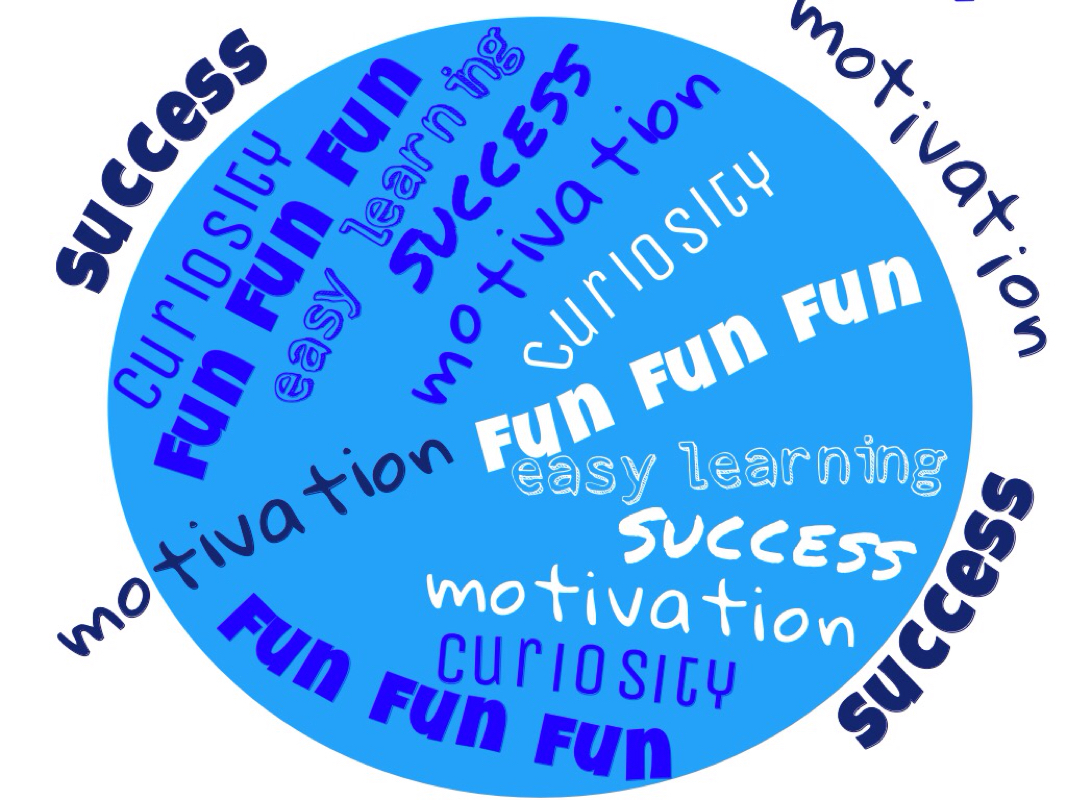






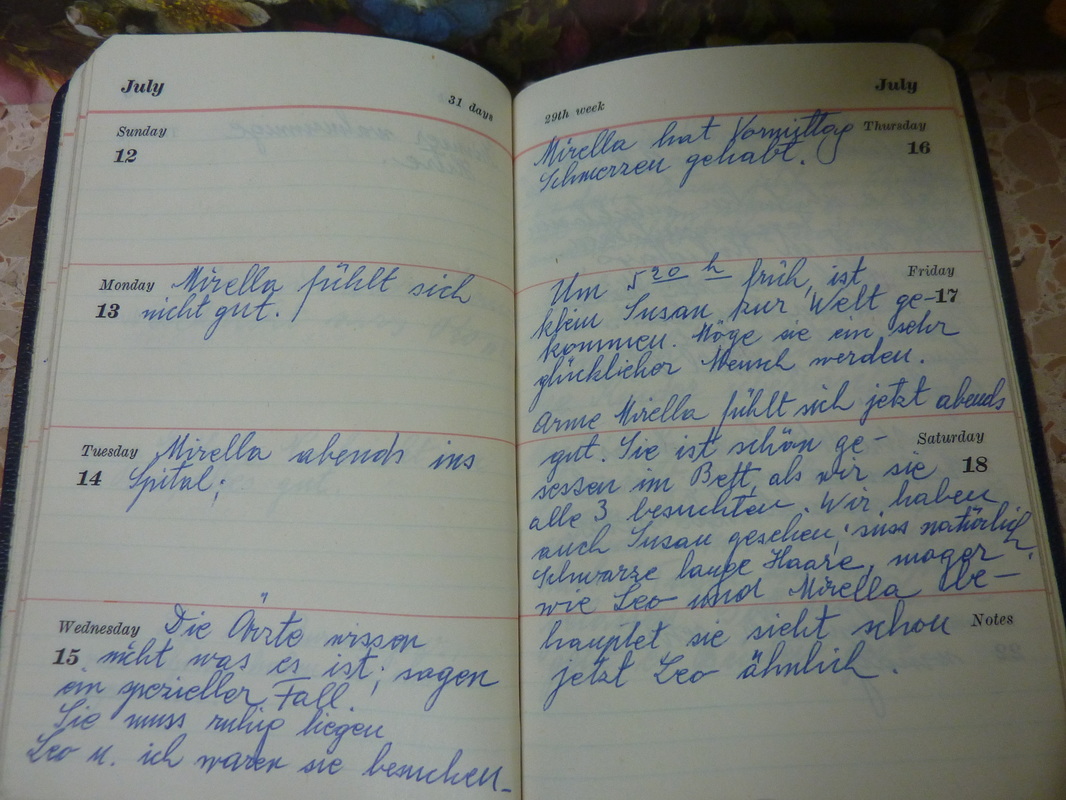



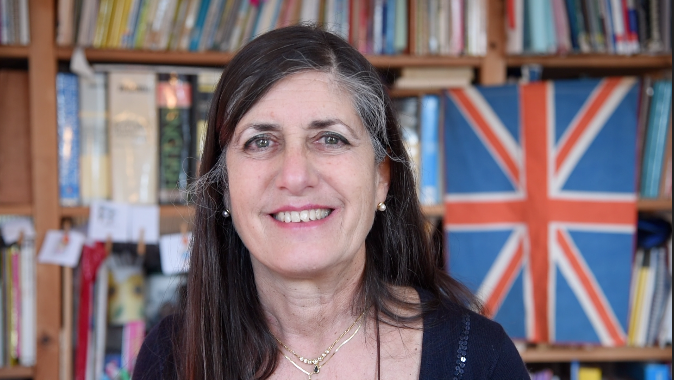

 RSS Feed
RSS Feed
